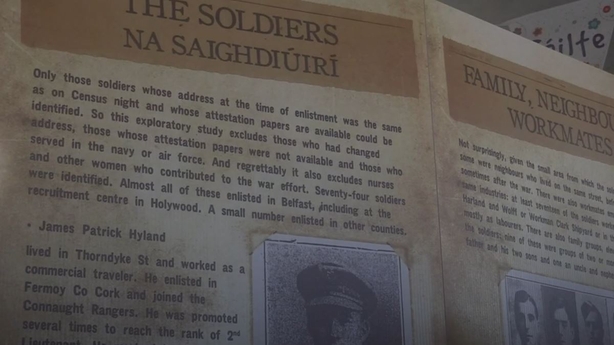Researchers studying the backgrounds of World War I soldiers from a part of Belfast traditionally associated with loyalism have discovered that 74 of them were Irish speakers.
Many of the gaeilgeoirí from inner east Belfast who fought in the conflict were Protestant, the historical project found.
The 18-month trawl of military records and census data was undertaken by Turas, an organisation that promotes the Irish language within the Protestant community.
Project leader Carmel Duggan said the findings challenge many perceptions about parts of east Belfast, suggesting a more positive attitude to Irish than might have been anticipated in working-class areas synonymous with the unionist tradition.
"There wasn't the antagonism towards Irish at that point," she said.
"Political developments from about 1912 onwards began to change that and so, by the end of the war, Irish was then sort of marginalised to being the language of one community.
"And ironically, at the same time, the war became the property of another section of the community.
"And I suppose that's one of the interesting things about our project - it just sort of locates itself within that turning point in the history of the island, but also in the history of east Belfast."
The project, which was supported by the UK National Lottery Heritage Fund, cross-referenced responses to the censuses of 1901 and 1911 with information contained in military records of Belfast soldiers compiled by local historian Jason Burke.
Householders who completed census forms in the early 20th century were asked to state their proficiency in English and Irish.

Ms Duggan said intriguingly many responses from Protestants who said they could speak Irish had subsequently been crossed out by officials.
She said the reason for these alterations remains a mystery, but one theory is that it was a political attempt to conceal the prevalence of Irish within the Protestant community.
"It could have been deliberately suppressed in terms of the numbers, it could have been that it didn't suit the politics of the day that there would be so many Irish speakers," she said.

